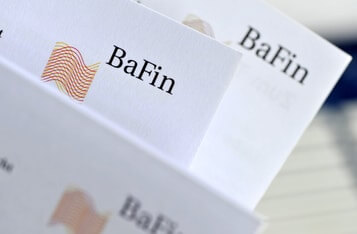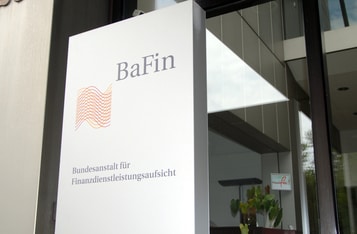Search Results for "bafin"
Germany’s Federal Financial Regulator Warns Investors Over Bulgarian Crypto Broker
Bulgarian crypto broker, 5 Capital, has been offering financial services to investors without being approved by the Germany financial watchdog, federal financial supervisory authority (BaFin).
40 German Banks Are Seeking Regulatory Approval to Offer Bitcoin Custody
Many German banks have filed a request to introduce a digital asset custody business. Germany’s Federal Financial Supervisory Authority, popularly identified as BaFin, has received over 40 applications from German banks interested in offering crypto custody services.
Bitpanda is Germany's first "European retail" crypto platform.
Bitpanda has a crypto custody license from BaFin. Austrian crypto exchange can legally market to Germans. Bitpanda is regulated in Austria, the UK, Italy, the Czech Republic, Spain, Sweden, and France.
German Financial Regulator Officially Classifies Cryptocurrencies as Financial Instruments
The German Federal Financial Supervisory Authority (BaFin) released a new guideline on classifying cryptocurrencies as financial instruments. The BaFin has taken crypto classification one step further as the previous guidelines only covered security tokens.
Germany’s Financial Regulator Warns Binance Over Stock Token Offering
Germany's financial regulator BaFin has warned Binance that it may be violating European securities laws with the introduction of its stock token trading.
Coinbase Ordered by BaFin to Ensure Proper Business Reorganization
German market regulator has instructed Coinbase to ensure its proper business reorganization
BaFin Declines to Classify NFTs as Securities, Recommends Case-by-Case Approach
The Federal Financial Supervisory Authority of Germany (BaFin) has stated that it is not yet prepared to classify non-fungible tokens (NFTs) as securities. While NFTs may be considered investments in certain cases, BaFin suggests that classification should be approached on a case-by-case basis. The lack of immediate exchangeability and standardization makes it unlikely that NFTs will be classified as crypto assets. However, if an NFT contains documentation of exploitation rights or ownership, it could be considered an investment. BaFin does not expect NFTs to comply with the licensing requirements of the Payment Services Supervision Act or fall under its Anti-Money Laundering supervision, except for NFTs that are considered "crypto assets."
DLT Finance Receives BaFin Licenses to Launch Trading Platform for Digital Assets
The new platform is now offering a variety of digital asset services to institutional clients after receiving nine new trading licenses.
100 Million: You Can Apply Swiss New FinTech licence Permitting to Accept Public Deposits of Up to 100 Million Next Year
From 2019, interested parties can apply for the new FinTech licence. The Swiss Financial Market Supervisory Authority FINMA is responsible for granting this licence. It has published guidelines aimed at simplifying the application process.
European Securities and Markets Authority Prioritizes Crypto-Related Regulation
The European Securities and Markets Authority (ESMA) announced its key priorities list for 2020-2022. In its published document “Strategic Orientation for 2020-22,” the ESMA reflected its focus on supervisory convergence and its role in building the Capital Markets Union.
Swiss Regulator Issues Banking Licenses to Two Blockchain Firms
The Financial Market Supervisory Authority (FINMA) in Switzerland has issued banking and securities dealers’ licenses to two new blockchain companies.
Germany's Federal Ministry of Finance Puts Digital Security Adoption at Core of Blockchain Strategy
Germany’s Federal Ministry of Finance (BMF) and the Federal Ministry of Justice and Consumer Protection (BMJV) have introduced a bill that highlights the adoption of digital securities as a crucial element of Germany’s blockchain strategy.











